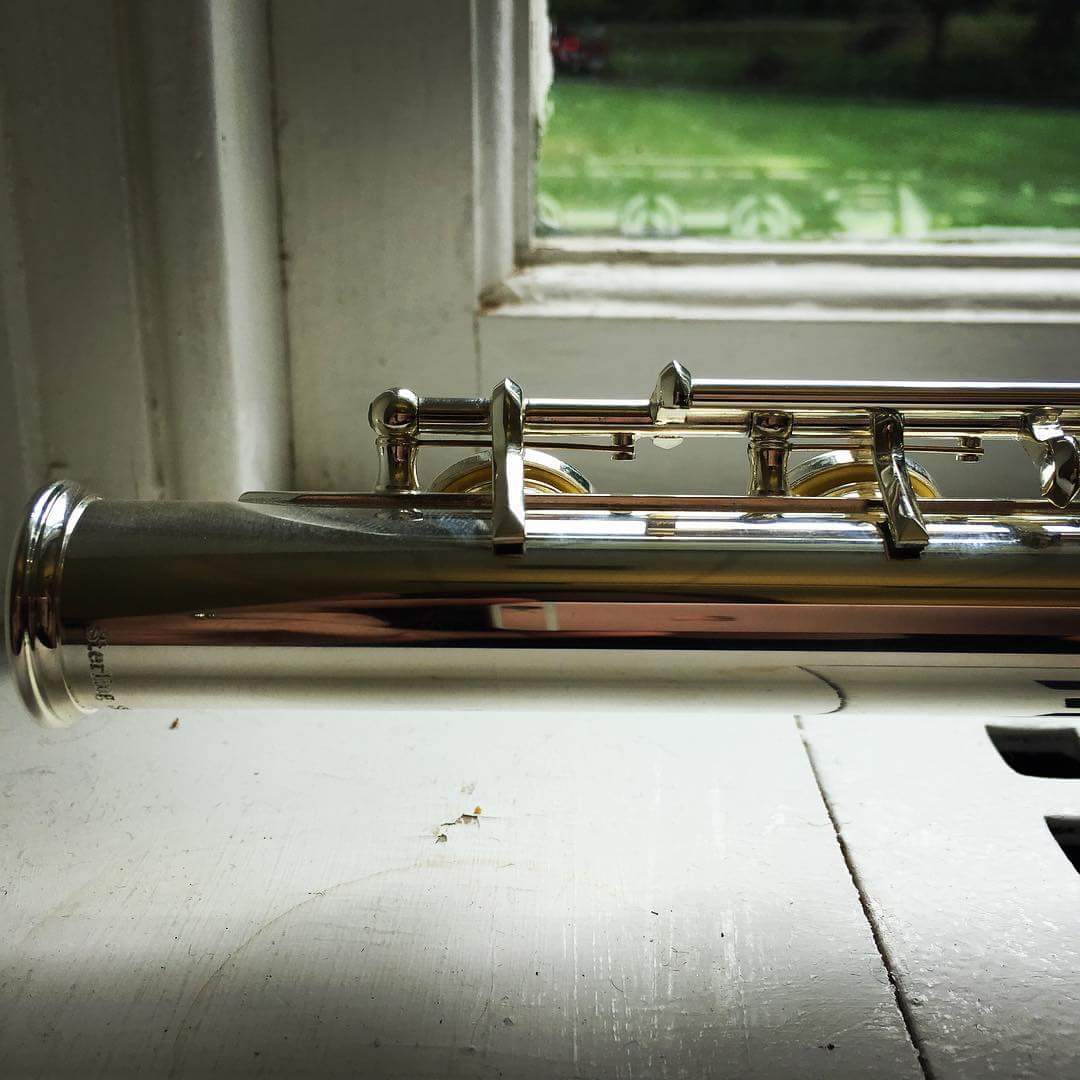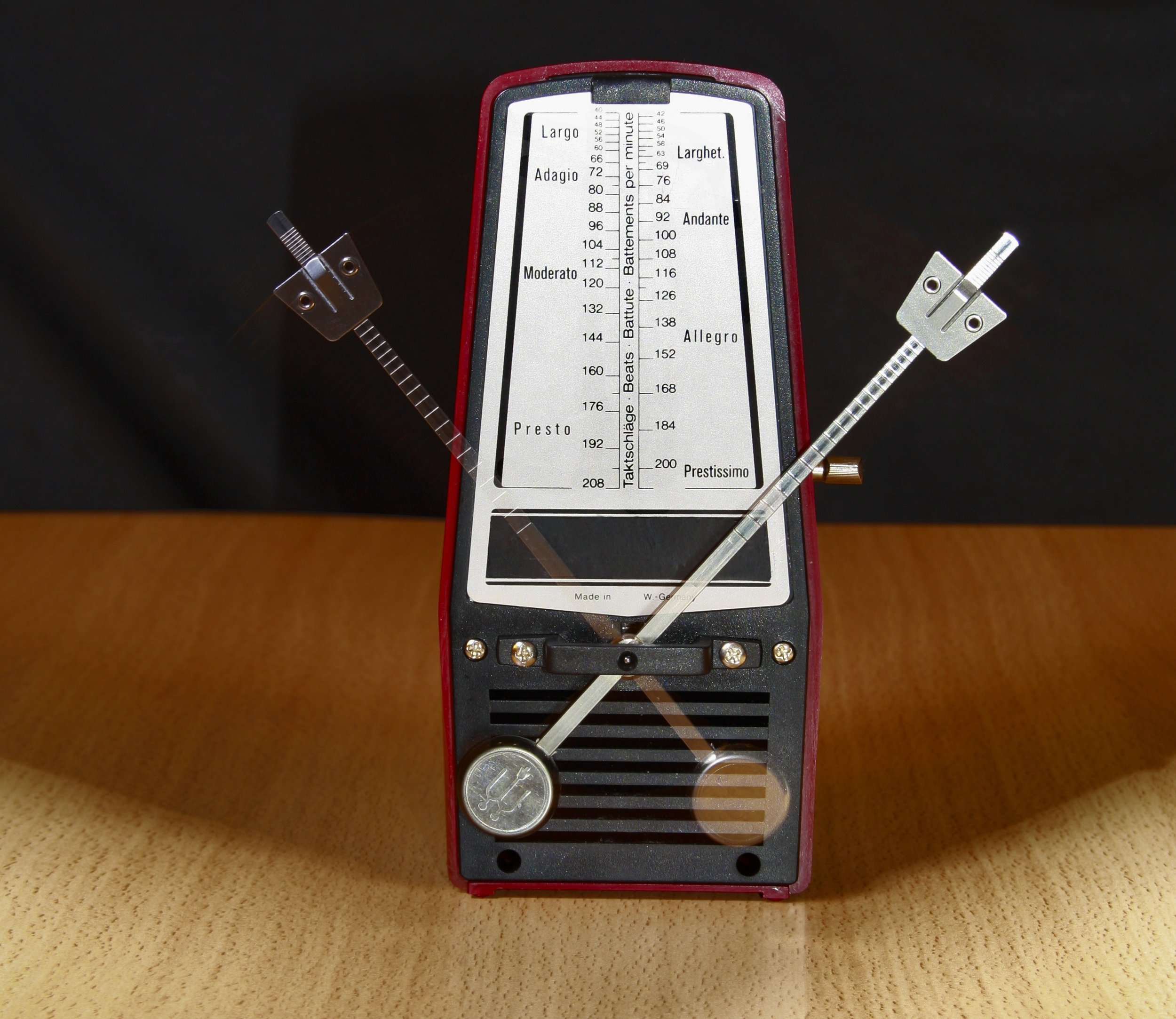Snapshot: July 28, 2018
Snapshot from the studio today. It’s a gorgeous day for teaching, and I couldn’t be more thankful for this opportunity.
Flute on window sill
Snapshot from the studio today. It’s a gorgeous day for teaching, and I couldn’t be more thankful for this opportunity.

Flute on window sill
If you follow me on Instagram, you've probably noticed me tagging various posts since the beginning of 2018 as #100daysof practice.

I'm honestly not quite sure where I first stumbled across the concept on of the internet, but I was really intrigued by it. The idea that I would, for 100 days, log my practice and hold myself accountable to a wider audience by making it public seemed like a great exercise.
Spoiler alert: while I did log 100 days of practice, I did not log 100 consecutive days of practice as I had initially hoped. Instead, I fully took the first half of the year to complete the challenge, and I have no shame about it. When it became clear early on that I wasn't going to meet the challenge as originally imagined, I decided to redesign it in a way that worked for me.
Even though it wasn't 100 days in a row, the 100 days that I intentionally logged were a great way for me to track my practice routine and yielded a fair bit of insight. Here are a few.
When I was in college, I really enjoyed the early morning practice routine I set up for myself. I'd get to campus, practice an hour or so, and then have a bagel-and-tea break with one or two other musicians. We'd grouse about what went wrong, celebrate what went right, and generally encourage each other to keep fighting the good fight. That camaraderie was a driving force for me. Knowing that there was someone else doing the work alongside me and encouraging me when it was hard to keep going made all the difference some days.
Now, as an adult with colleagues scattered across the East Coast--and a few further afield--that physical practice community has all but disappeared. I knew that I missed it, but I was still surprised by how much having a virtual community cheering me on during the 100 days challenge helped keep me going forward. We may all be in different cities, states, and time zones now, but colleagues old and new are a huge part of what makes doing this often-solitary work a little easier and more meaningful.
As much as I hate to admit it, I definitely over-estimate the amount of time I've spent practicing unless I'm writing it down. While the challenge is over, and I'm no longer trying to make Telemann duets look photogenic, I've kept the habit of writing down what I'm working on for each instrument, tempo markings, trouble spots, and technique issues. Equally important, I make sure to write down the triumphs I have in each session, too: goals that were met, sections that are now up to speed, transitions that are smoother. I can't emphasize enough how much more productive my practice sessions are when I know what to focus my efforts on versus what "only" needs to be maintained.
Teachers and performers, this one is for you. It can be easy to let our own development slide in the face of money-making endeavors. Sometimes we stagnate because we’re putting all our energy into paying work. Sometimes we stagnate because it's difficult to squeeze any more time out of an already-packed schedule. Frankly, sometimes we are just burned out. But one of the best gifts we can give ourselves is a return to a learning mindset. Conscientious, dedicated, consistent practice helps us move from running in place to real progress. This kind of work helps us re-discover the wonder of music that brought us to the art in the first place. Not to mention that embodying readiness to keep learning sets a powerful example for our students; how can we demand something from them that we aren't demonstrating ourselves?
I would encourage any musician feeling stuck in their progress to give the 100 days of practice challenge a chance. It could be just the jump start your musicianship needs.
I have lost count of the number of times I have been told as a student to engage in "slow practice." I'm equally at a loss as to the number of times I've passed on this direction as a teacher.
But regardless of whether you are on the giving or receiving end of this advice, sometimes it can feel like you're listening to a broken record. Why all of this emphasis on slow practice?
At first blush, slow practice can feel torturous, no matter how long you've been playing music. Slowing your 16th notes down so they are played like 8ths--or somehow worse, quarter notes--can feel like the ultimate in excruciating practice. If you're a beginner, you may assume the teacher thinks you can't handle the "real" tempo of a piece. A little more advanced, and it feels like you're holding yourself back by spending so much time under the final tempo. And I can tell you as a professional, there's a real temptation to think you are "better than this" when a beloved mentor recommends you spend some time with your metronome set to what feels like an unreasonably low number.

Why do musicians hear and share this correction so often?
Because it has tremendous merit. There is so much to be gained from slowing down and being fully aware of what and how we are playing. Here are a few of my favorites.
One of the greatest gifts my high school flute teacher gave me--aside from an enduring love of the Baroque--was a deep understanding of slow practice and intonation. Under her expert guidance, I spent months with Trevor Wye's Tone book, a tuner, and a metronome set at 60 bpm. Slowing down, working in half step pairs of quarter notes, allowed me to really understand how I was producing sound, what I could change to get a more focused/in tune tone, what sort of sound concept I wanted to convey. What I learned in those slow practice sessions continues to inform my playing and teaching two decades later.
Hang in there, pianists. You may not have direct control over whether your chords are in tune or not, but you do have direct control over how you are approaching tone production. Just like with woodwinds, slowing down allows you to really listen to how you are creating your sound. Are you playing from your wrists? Elbows? Shoulders? What happens if you experiment with one versus another? Can you change how you voice a chord by weighting your attack differently? You, too, have a lot to gain in your tone by slowing down.
The phrase "perfect practice makes perfect" is attributed to Vince Lombardi, and it is as applicable in the practice room for musicians as it is on the practice field for athletes. While we can discuss whether the word "perfect" really should have a place in our vocabulary as musicians, there's a great lesson here regardless. Accurate, deliberate practice leads to accurate, deliberate performance. Often times when working on a piece at a fast tempo, our inclination is to push to keep the speed up, sometimes sacrificing accuracy in the name of speed. Approaching a piece slowly allows for the opportunity get comfortable with the finger patterns, embouchure changes, air speed, and other nuances that can easily be overlooked when playing fast.
Slow practice strengths the physical aspects of your playing. If you can make it through your Clementi sonatina at half the speed it was intended to be played at without your arms giving up, you will have no trouble maintaining your strength when it zips by at 108 bpm. If you can breathe your way through Carl Maria von Weber at 42 bpm, your lungs will thank you when you get to 132.
This may be my favorite benefit of them all--although as a piccolo player, I have to say that intonation may actually share the number one spot with mindfulness. When you slow down, you're removing some of your adrenaline and anticipation from the equation by allowing yourself to observe each note as it comes. Did it match your inner concept of that note? If not, try again with the next note, focusing on just that moment. If it did, can you carry that concept through the entire phrase? How does your body feel when you play that note, that chord? Is it relaxed and easeful, or are you carrying extra tension that's inhibiting your sound?
These kinds of questions can be difficult to evaluate when working a piece at tempo when a good deal of mental energy is expended elsewhere. Slowing down your practice lets you get inside your music and examine what you find there. It's an incredible tool on your journey to improve your musicianship.

It's that time of year again: time to start preparing for Maryland All-State auditions. Here's the list of requirements, straight from the Maryland Music Educators Association website. Talk to your band director about getting set up, and then go see your private teacher for help preparing your scales, solos, and sight-reading for your audition!
If you're looking for information on All-State Senior Band, you can find that in this post.

Image via Pexels
I haven't forgotten those auditioning for All-State Senior Band! Here's your list of requirements, plus sight-reading. For additional information, talk to your band director and visit the Maryland Music Educators Association website.
You can find the audition requirements of All-State Junior Band in this post.